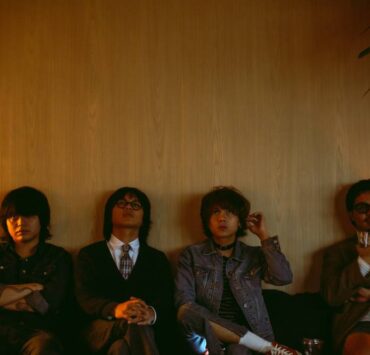The women who make catering easy, like Sunday mornings
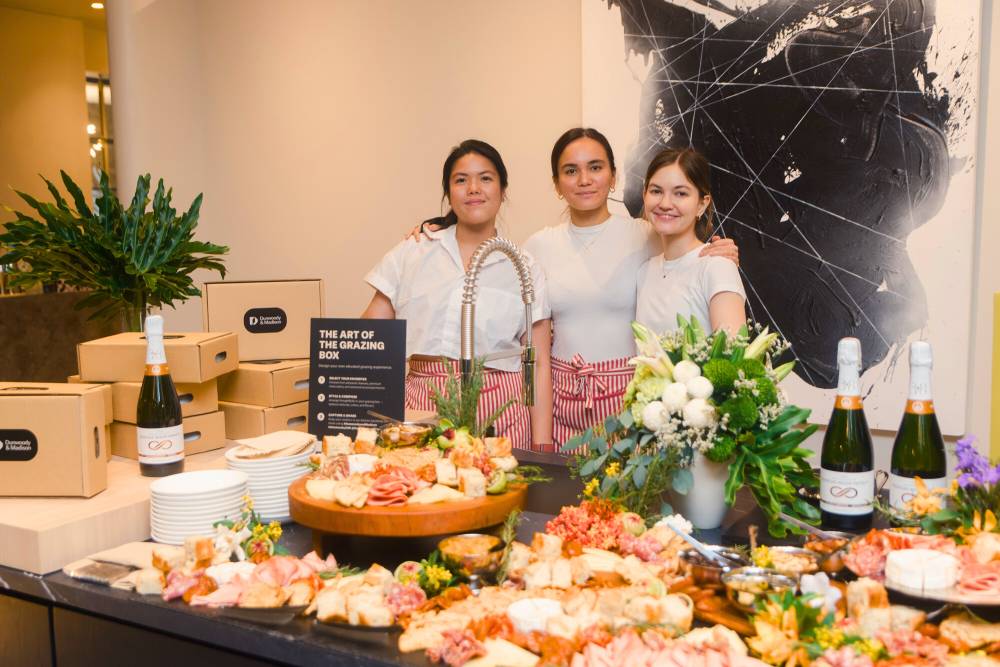
Catering company Sunday Street Co. may have only started in December 2023, but it has quietly established itself as a popular choice for event catering with a vibe that’s completely theirs—fine casual food and trend-forward presentation yet approachable enough for a range of customers.
But it wasn’t really supposed to be a catering concept.
“We went into deep R&D for our cafe concept but ultimately decided that it wasn’t the right time to open, so we pivoted and started a private catering business to test our ideas and see how well we work together,” says co-founder, chef, and functional nutritionist Jovy Acuzar.
Together with food consultant Iyay Ignacio (who also grows mushrooms via Mouldy Blooms) and pastry chef and cookie entrepreneur Tara Alvarez, the women behind Sunday Street Co. see their foray into a full-blown hospitality brand as not just a means to flex their creative muscles, but also to become an invaluable provider for discerning customers’ needs.
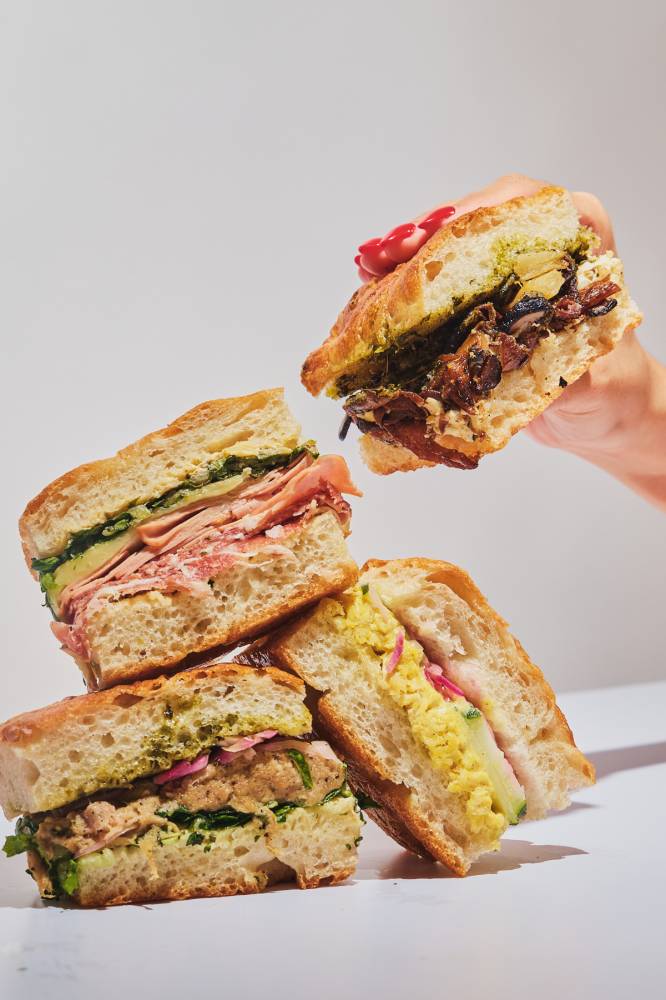
“We really feel like we have a new point of view with the type of food we want to offer as well as the overall experience we want our guests to have,” says Alvarez. “We’re inspired by so many greats—Blacksheep in Hong Kong, Trader House in Melbourne—and hope to one day grow to a collective of unique and memorable dining experiences under Sunday Street Hospitality.”
That’s not a far-fetched vision. Since opening, Sunday Street Co. has proved its mettle, catering for international brands like Le Labo (with a vegan menu, no less), Cheak Activewear, and Scavolini, as well as festivals like the Manila Natural Wine Fiesta—thanks largely to their elevated take and taste in dining experiences, capability to rise to any occasion’s needs, and attractive food presentation.
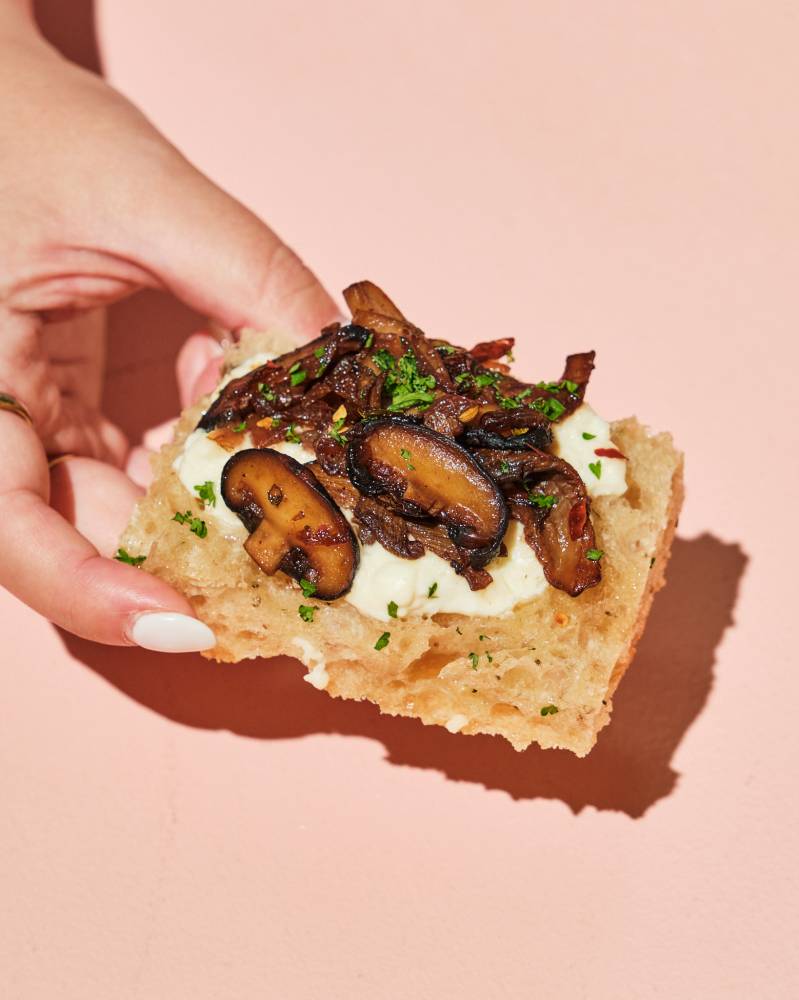
As demand grows for catering requirements and brand events swinging into full gear, Sunday Street Co.’s investment in its own commissary and staff (they now have three full-time employees on top of the on-call staff for larger parties) couldn’t have come at a better time. And while they run a tight ship, Acuzar, Alvarez, and Ignacio are also actively growing their Sunday Street Boxes to take advantage of consumers with smaller requirements and eventually make it a significant driver of the business.
“For 2026, one of our key priorities is to grow our Sunday Street Boxes category, which features some of our signature catering dishes to-go,” says Acuzar about the growth potential of this segment. “We want to make it easier for our clients to host at home—whether by serving our dishes on their own or mixing them with their own home-cooked or store-bought favorites.”
Here, we talk with the Sunday Street Co. founders about what the Filipino consumer wants and the biggest misconception about caterers.
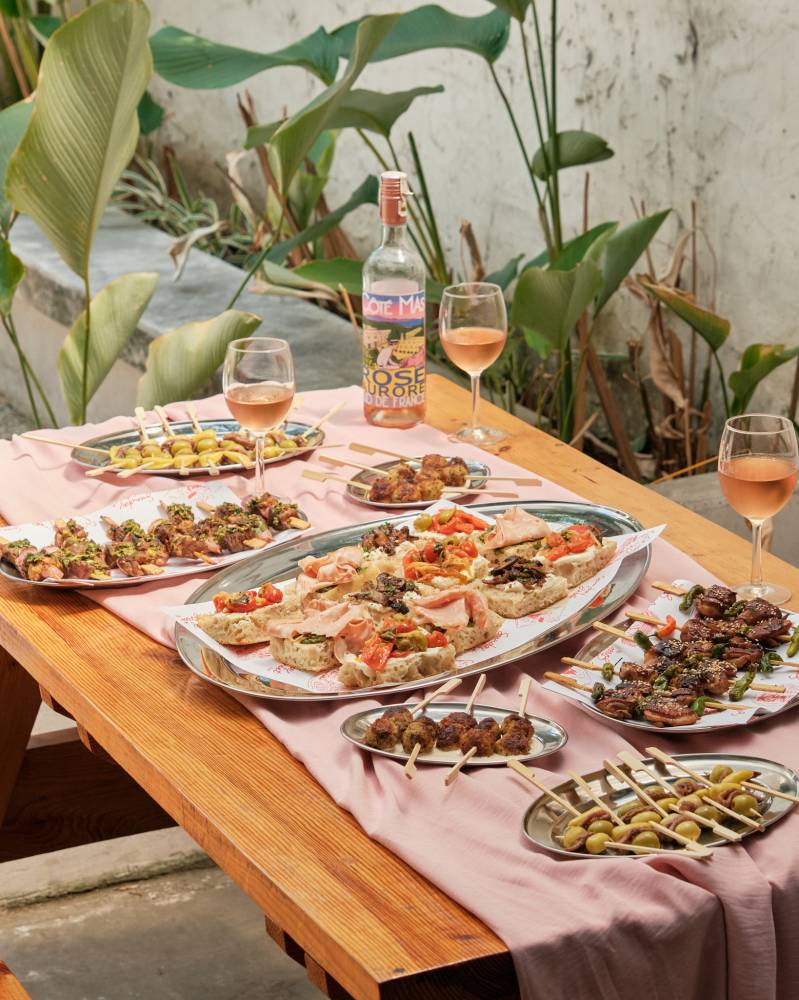
What do Filipino customers seek in catering services?
Jovy Acuzar (JA): One key insight is that customers don’t always want to customize everything; they prefer easy, streamlined options. In the beginning, we offered highly detailed customization, even down to tablecloth and tableware choices. But many clients simply don’t have the time to decide on every detail.
Tara Alvarez (TA): We’ve also noticed new, younger clients wanting a more unique catering service. Something with a more trend-forward look and Instagram-worthy dishes and spreads.
Aside from the Sunday Street Boxes, what are your business goals and key priorities in 2026?
JA: We’re always looking for ways to make our process more efficient internally and more seamless for our clients, which means consistently looking for areas of improvement. This mindset guides our business goals. Another major focus is expanding into the corporate segment. We’re developing menus tailored specifically for meetings, conferences, and other corporate events, as we’ve received a ton of requests from clients looking for our style of food in these settings.
What’s your criteria for selecting catering equipment or suppliers?
Iyay Ignacio (II): We don’t always go with the cost-efficient options. We’ve learned [that] the hard way! We love working with people and suppliers we trust and have worked with before, and we understand that peace of mind comes at a price. We do, however, enjoy the occasional farm visits as well as Divisoria, Quiapo, Dangwa, and Dapitan market trips. We also watch online auctions for service equipment.
Off-premises dining can be a challenge, but what’s the best way to elevate the catered dining experience?
II: In each event, you really have to take the perspective of the guests. How am I going to pick up and carry this bite? What do I use to wipe my fingers? Is it easy to go from the buffet to my seat? We have to make sure that the servers know the food they are serving, including the wines, and even where the nearest restroom is.
What’s the weirdest or most unconventional venue you’ve set up in?
II: So far, our venues have been in homes, conference rooms, event spaces, brand showrooms, retail stores, and other restaurants. We have worked in big kitchens and the tiniest makeshift work areas, including storage spaces and dressing rooms! We are looking forward to being able to do outdoor dining, in a farm, perhaps, or outside the city. I think that would be fun. We are also working on being able to afford a catering truck or mobile kitchen so we can basically set up anywhere.
Lastly, what’s the biggest misconception people have about caterers?
TA: It’s not just about the food! Yes, you are picking a menu, but you are also choosing an experience. Great catering is memorable and not just because the food is delicious.















